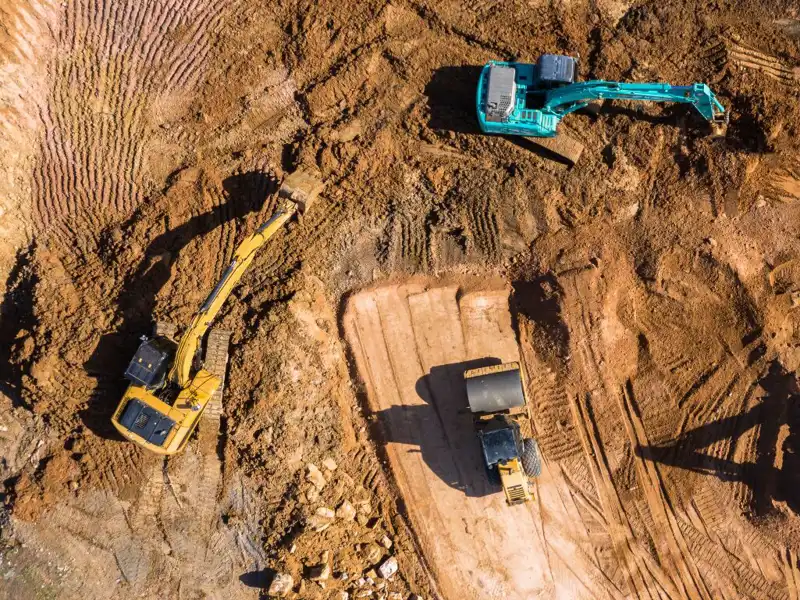
Written by Thomas Strong, SVP, Construction Technology and Innovation Leader
AI in construction, drones, the Internet of Things (IoT) and other emerging technologies are reshaping the construction industry.
As these innovations take hold, they’re not only transforming job sites but also redefining how construction firms approach risk management and insurance. However, emerging as a descriptor may be a bit misleading — the truth is, these technologies are already here and changing the construction landscape.
Embracing Digitization for Efficiency and Safety
Ten years ago, the biggest challenge was simply getting the construction industry to adopt construction innovation. Today, the question is no longer if firms will implement new construction technology, but how efficiently they can integrate them into their operations.
Advanced tools like AI, drones and IoT systems are enabling real-time monitoring of job sites, ultimately improving construction project efficiency an accomplishing tasks that were previously unattainable.
These technologies:
-
Enhance efficiency by streamlining workflows and reducing delays.
-
Improve safety through real-time monitoring and risk detection.
-
Boost collaboration by enabling seamless data sharing across teams.
The ability to collect and share valuable real-time data and information across teams is quickly becoming an expected capability. To stay competitive in an evolving industry, companies must focus on seamless adoption and implementation of AI technology in construction to improve productivity and manage risk.
New Tech, New Risks
We’ve all heard the saying, “more money, more problems,” but what about “new tech, new risks”? While the benefits of new technology are significant, deploying advanced tools in construction comes with challenges.
Some things to consider in your construction risk management strategy are:
-
Upfront costs can be a barrier for firms.
-
Cybersecurity concerns must be addressed to protect sensitive data.
-
Training requirements ensure proper use and seamless integration.
-
Impact to existing workflows needs to be fully understood across project collaborators.
Having the right risk management experts, protocols and technology coverage is highly important. Whatever product you bring into your organization, you’re partnering with that system, and, accordingly, everything should be thoroughly vetted. Technology has a huge impact on the risk profile of projects — always consider the long-term implications, including cybersecurity risks.
Bridging Technology and Insurance
For construction firms, digital construction tools and construction insurance solutions aren’t just about boosting productivity; they’re also a critical tool for managing risk, and insurers are taking notice. In the US, more carriers are recognizing that companies using sophisticated project management systems experience fewer claims and better risk outcomes.
With the right support from brokers like NFP, contractors can maximize the benefits of new technologies, including digital construction tools, while strengthening their risk management strategies. At the same time, we work closely with insurers to make sure these efforts are acknowledged, and to secure lower premiums for our clients.





